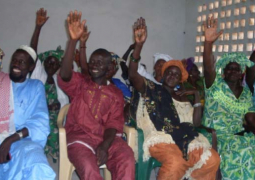The Board of Executive Directors of the World Bank last week approved three projects totaling US$92 million to boost ICT infrastructure and access to better services in three African countries.
A press release from the bank said Burkina Faso, Guinea and The Gambia received grants of US$23 million, US$ 34 million and US$35 million respectively, as part of a US$300 million West Africa Regional Communications Infrastructure Program (WARCIP) as endorsed by the Board on January 20, 2011.
According to Boutheina Guermazi, one of the two Task Team Leaders with Mavis Ampah, “the three nations currently have some of the highest connectivity costs in the world, and are among the few countries in
The
The projects will help usher in major infrastructural revolution in these countries.
“Addressing connectivity gaps and deployment of broadband networks in The Gambia,
The projects’ development objectives are to contribute to increasing the geographical reach of broadband networks, and to reducing the costs of communications services in each of the territories of The Gambia,
The projects are designed to encourage and support private sector investment using catalytic financing and PPP arrangements to minimize public investment.
The projects recognize that the creation of pro-competitive enabling environments is a prerequisite for affordable connectivity.
The projects, therefore, focus on fostering an enabling environment in the sector by facilitating liberalization, open and non-discriminatory access to capacity, as well as building capacity of regulators to ensure that fair rules of competition apply in the sector, emphasized the Task Team leaders.
“This is truly a unique opportunity to transform the lives of average citizens by providing better and affordable basic services through the use of ICT”, said Boutheina Guermazi.


